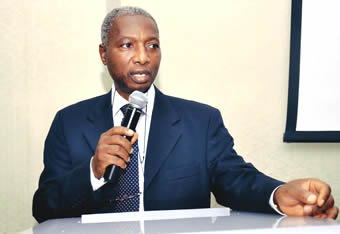…..targets N250m revenue from licensing
The Federal Government recently announced measures to liberalize oil bunkering operations in Nigeria. Steps to achieving the objective include the development of a new set of guidelines aimed at stimulating activities in the area in ways that would maximize value for the nation and stakeholders. Operations will rely on enhanced synergy and cooperation between the relevant Government institutions on bunkering activities; such as the Navy, Nigerian Customs Services (NCS) the Nigerian Ports Authority (NPA) and the Nigerian Maritime Administration & Safety Agency (NIMASA) under the new arrangement.
Government expects to generate more than N250 Million annually from the licensing of prospective bunkering operators. It is expected that the official reintroduction of bunkering activities under a synergized monitoring regime as announced, would curb the excesses identified with the activities in the past. In addition, the Director of Petroleum Resources, Mr. George Osahon said while addressing Stakeholder’s at a forum in Lagos on Wednesday January 8th, 2014 that the new bunkering regime would create employment opportunities for Nigerians in the sector. He noted that the potential economic prospects in the area informed the approval of the President, Dr. Goodluck Ebele Jonathan, GCFR for bunkering activities to be restored in the country. Mr. Osahon recalled that bunkering was first officially established in Nigeria and licensed by DPR in 1979 but suspended in 2000, following irregularities and sharp practices by some unscrupulous operators.
 In his address to the forum, The Director of Petroleum Resources defined bunkering as the “business of fueling ships or the process of supplying seagoing vessels with fuels, including but not limited to AGO, fuel oil, liquefied natural gas and lubricating oil”, saying that now, the resumption of the activity under a strict regulatory regime is set to make Nigeria the hub of bunkering in West Africa. According to him, resuscitating bunkering operations will help the budding Nigerian marine industry and save operators the stress of going as far as Senegal, Cape Verde and Cote D’Ivoire to refuel vessels operating in the Nigerian waters, as used to be the case.
In his address to the forum, The Director of Petroleum Resources defined bunkering as the “business of fueling ships or the process of supplying seagoing vessels with fuels, including but not limited to AGO, fuel oil, liquefied natural gas and lubricating oil”, saying that now, the resumption of the activity under a strict regulatory regime is set to make Nigeria the hub of bunkering in West Africa. According to him, resuscitating bunkering operations will help the budding Nigerian marine industry and save operators the stress of going as far as Senegal, Cape Verde and Cote D’Ivoire to refuel vessels operating in the Nigerian waters, as used to be the case.
Captain S. O. Ayeni, Naval Director of Marine Services and representative of the Nigerian Navy at the forum, reiterated that any vessel deployed for bunkering in the Nigerian waters must fulfill the laid-down requirements. He specifically noted that operators “…will be required to present to the Nigerian Navy an application for bunkering clearance, detailing the vessel involved, the location of the bunkering operation or discharge point, quantity of bunker fuel and duration of the operation”. Capt. Ayeni further stated that operators are required by the Navy to present valid DPR and NIMASA licenses and certifications on demand.
Speaking in a similarly vein, the representative of the Nigerian Customs Services (NCS) Mr. Edoreh Elton, Deputy Comptroller of Operations, Eastern Marine Command, Port Harcourt outlined other conditions to be met by vessels engaging in bunkering operations in the Nigerian waters. He said operators of Nigerian flagged vessels in bunkering business are required to show proof that they had a paid the appropriate duties, and vessels leased from outside Nigeria are required to obtain temporary importation permit from NCS.
On his part, the NIMASA Representative, Mr. Ofonabasi Inem, Assistant Director of Operations, stated that proof of ownership; i.e. ship builder’s certificate, shipyard clearance and a number of other documents are required before certification of vessels by NIMASA. He therefore advised intending operators on the need to engage proven experts in the area before procuring vessels to forestall acquisition of unsuitable vessels.
The Director of Petroleum Resources, Mr. George Osahon in closing advised that intending operators and the general public should visit the DPR website, https://dpr.gov.ng/license-permit/bunkering-guidelines/ for the new guidelines on Bunkering and application forms for DPR license.


